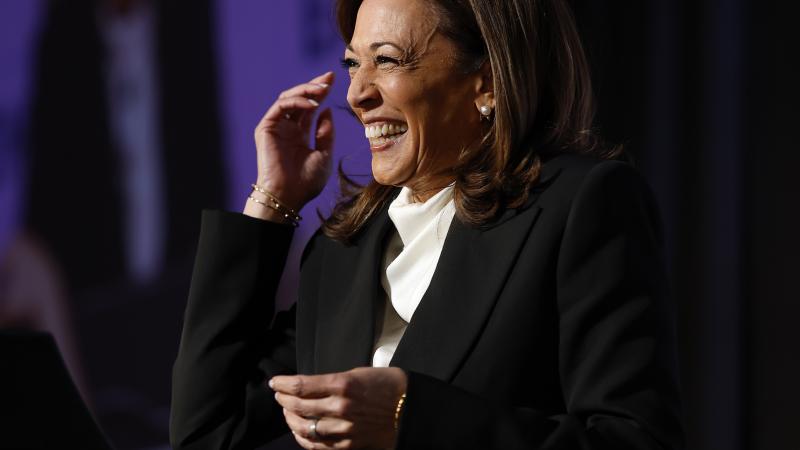Trump campaign expands lawsuits in strategy rooted in Constitution's voting law authority
Trump has assembled a high-powered legal team to combat what it says is executive and judicial overreach in key battleground states led by Democratic governors.
As the Trump campaign expands its lawsuits — including new filings Wednesday in Georgia and Pennsylvania — legal scholars say they are likely rooted in the Constitution's voting law authority, which limits the power of non-legislative actors trying to assert their power over balloting.
Trump has assembled a high-powered legal team to combat what it says is executive and judicial overreach in key battleground states led by Democratic governors. The Elections Clause of the Constitution (Article I, Section 4) gives state legislatures the authority to set the time, place and manner of federal elections, i.e., the rules governing the election process, including absentee ballots. Republicans say this legislative power has been eroded by both executive and judicial mission creep.
In Wisconsin, for example, the Governor, Tony Evers is a Democrat, but both chambers of the legislature are held by Republicans. The Trump campaign has filed for a recount in the Badger State amid a razor-thin lead held by rival Joe Biden. The Supreme Court late last month rejected Democrats' request to extend the deadline for counting mail-in ballots in Wisconsin beyond Election Day because of coronavirus concerns.
The GOP and the Trump campaign also announced Wednesday they are suing Pennsylvania, claiming the extension of a voter ID deadline is in violation of state law. The Keystone State has a Democratic governor, Tom Wolf, and a state supreme court with a majority of partisan, elected justices — five of its seven judges were Democrats upon their first election. The court recently ruled against Republicans and allowed Pennsylvania to accept ballots received up until 3 days after Election Day.
The U.S. Supreme Court declined to hear a challenge to that ruling, letting it stand for now with a 4-4 ruling, prior to Justice Amy Coney Barrett's seating. Republicans brought the case up to the high court a second time after Barrett's seating and were again denied a hearing on the case prior to Election Day (Barrett did not vote on that ruling, saying she hadn't had time to review the case). Republicans say a third try might see a different outcome, if the court agrees to hear the case in an emergency situation like the current electoral uncertainty.
Conservative activists filed a lawsuit on Election Day against the Pennsylvania state secretary alleging that a last-minute rule change to the state's ballot-counting process is privileging some voters over others and potentially slanting the outcome of the election.
On Wednesday, Trump's team also filed a lawsuit in Georgia, where a GOP poll observer saw 53 late absentee ballots "illegally added to a stack of on-time absentee ballots in Chatham County," said Deputy Campaign Manager and Senior Counsel Justin Clark. "We will not allow Democrat election officials to steal this election."
Hans von Spakovsky, a former member of the Federal Election Commission and a legal scholar at the Heritage Foundation, told Just the News that in the Trump campaign's cases in Pennsylvania, Wisconsin and Michigan, the courts should ensure that poll watchers are given the ability to completely observe the counting process as required under state law and should order election officials to not only allow complete access to designated poll watchers, but also to enforce full compliance with state laws governing absentee ballots.
"I believe the Trump campaign has a strong constitutional argument," Von Spakovsky said. "That includes any requirements for signature comparison, witness signatures, etc. Election officials should not be allowed to waive those rules and count such defective ballots."
Von Spakovsky said that under the U.S. Constitution's Elections Clause, if state legislatures want to extend the deadline for the receipt of absentee ballots beyond Election Day, they can do so.
"But neither state courts — like in Pennsylvania — nor other state officials/agencies — like the state board of elections in North Carolina — have the legal authority to simply override a state statute and extend the deadline for the receipt of absentee ballots," von Spakovsky said. "So the Trump campaign can argue that any ballots received after the deadline imposed by the legislature in state law are illegal and should not be counted."
Von Spakovsky said that Republicans have generally been more successful than Democrats at challenging election balloting and counting procedures, including in Alabama, Texas, South Carolina, Minnesota and other states.
"But so far they have not succeeded in crucial states like Pennsylvania and North Carolina," he said.
Von Spakovsky noted that Chief Justice Roberts issued a statement saying that he defers to state court rulings on these matters while ruling against federal courts. Roberts gave that explanation in the Wisconsin case on Oct. 26. The 7th Circuit Court of Appeals had thrown out a decision by a federal district court in Wisconsin that extended the deadline for the receipt of absentee ballots from Nov. 3 to Nov. 9. Roberts wrote a concurrence saying this case was different from Pennsylvania because in Wisconsin, a federal court was intruding into the state lawmaking process whereas in Pennsylvania, it was the state court applying its own state constitution to change the absentee ballot deadline.
"I think this was mistaken analysis by the chief justice because the U.S. Constitution delegates authority to state legislatures, not state courts," Von Spakovsky said.
Republicans say they are hopeful the U.S. Supreme Court — especially with the newly-sworn Justice Barrett to possibly tip the balance — will ultimately restore constitutional order under a strict textualist reading that prohibits last-minute judicial usurpation of the prerogatives of state legislatures to make election rules.
Tom Spencer, a Republican attorney who is vice president of the Lawyers Democracy Fund and was a recount lawyer for George W. Bush in the 2000 election, told the "Just the News AM" television show he hopes that the Supreme Court will put a stop to judicial and executive mission creep.
"The Supreme Court has said that 'legislature' doesn't mean just the sitting body legislative," Spencer explained. "But it also means voter initiatives and other things. So now, of course, the states have expanded that to mean judicial decisions and interpreting the state rulings. So it's a huge problem, and I think that somebody who is a strict constructionist, a textualist, needs to get a hold of that issue, and bring it back to what the founders intended in the Constitution."
Ilya Shapiro, director of the Robert A. Levy Center for Constitutional Studies at the Cato Institute, told Just the News that the battle could very well end up before the Supreme Court and newly-seated Justice Barrett could provide a pivotal vote, given that a recent Supreme Court ruling on the Pennsylvania case was a 4-4 split.
"The issues that are arising now [are] that state courts are changing certain provisions," Shapiro said. "That doesn't mean that's necessarily the end of the game, because now we're saying that, obviously, there could be litigation in different states. And if it's a state whose electoral votes matter for the ultimate resolution of the election, then ultimately, that could get to the Supreme Court."
The Facts Inside Our Reporter's Notebook
Links
- Constitution's voting law authority
- high-powered legal team
- both chambers of the legislature are held by Republicans
- The Supreme Court late last month rejected Democrats' request to extend the deadline
- The GOP and the Trump campaign also announced Wednesday they are suing Pennsylvania
- The U.S. Supreme Court declined to hear a challenge to that ruling
- filed a lawsuit on Election Day against the Pennsylvania state secretary
- Trump's team also filed a Georgia lawsuit on Wednesday
















